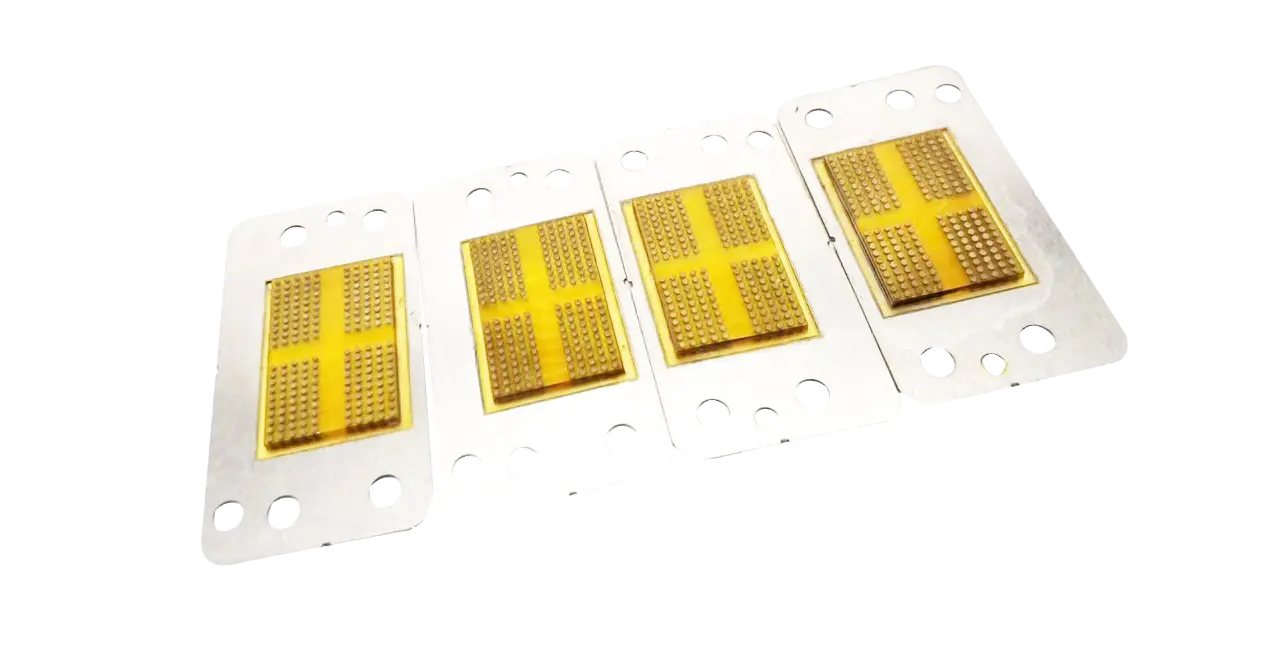In the realm of electronics testing and semiconductor development, test sockets play a critical role in facilitating efficient and accurate evaluation of integrated circuits (ICs) and other semiconductor devices. Test sockets come in various forms, each designed to address specific needs and challenges encountered during testing processes. Let's delve into the semiconductor socket commonly used today.

Manual test sockets are the fundamental type of socket used for semiconductor testing. As the name suggests, these test sockets require manual insertion and removal of the semiconductor device by an operator. They are typically employed in low to medium volume testing scenarios, where flexibility and ease of use are prioritized over high throughput.
Manual test sockets offer simplicity and affordability, making them suitable for prototyping, development, and small-scale production environments. Engineers appreciate their accessibility and straightforward operation when validating new designs or troubleshooting circuit issues.
Pogo pin test sockets utilize spring-loaded pins (known as pogo pins) to establish electrical contact with the terminals of the semiconductor device. These test sockets are favored for their reliability and ability to accommodate devices with varying pin configurations.
Pogo pin test sockets are particularly effective in automated testing setups, where quick and repeatable connections are essential for high-throughput testing. They excel in environments requiring frequent device changes or where fine pitch contacts are necessary.
Burn in test socket refers to a specialized socket used specifically for burn-in testing, a process designed to stress semiconductor devices under elevated temperatures to identify potential reliability issues. These test sockets are engineered to withstand prolonged exposure to high temperatures and ensure consistent electrical performance throughout the testing period.
Burn-in test sockets are crucial in semiconductor manufacturing, where identifying early failures and weak components can significantly improve product reliability. They are designed for durability and thermal stability, making them essential tools for quality assurance in IC production.
Fine pitch test sockets are tailored for testing semiconductor devices with closely spaced pins or pads, such as those found in advanced ball grid array (BGA) or quad flat no-lead (QFN) packages. These test sockets employ specialized contact technologies to ensure precise and reliable electrical connections with minimal risk of damage to the device or socket.
Fine pitch test sockets are indispensable in modern electronics manufacturing, where miniaturization and high pin-count packages are increasingly common. They enable accurate testing of cutting-edge ICs and ensure optimal performance in demanding applications.
Production test sockets are designed for high-volume testing environments, where efficiency and reliability are paramount. These test sockets are engineered to withstand continuous use and frequent device changes without compromising testing accuracy.
Production test sockets are often integrated into automated test handlers or robotic systems, streamlining the testing process and minimizing human intervention. They are optimized for rapid throughput and are essential components of semiconductor assembly and testing lines.
When it comes to choosing between elastomer sockets and pogo pin sockets for electronic testing and interconnect applications, each type has its own set of advantages and disadvantages. Here’s a detailed comparison to help you understand the differences:
High Compliance: Elastomer sockets use a conductive elastomer material that can conform to various pin shapes and sizes, providing good electrical contact.
Low Force: They generally require less insertion force compared to pogo pin sockets, which can be beneficial for delicate components.
High Frequency Performance: Elastomer sockets are often better suited for high-frequency applications due to their lower inductance and capacitance.
Durability: They can be more durable in terms of maintaining contact integrity over many cycles, especially in high-frequency applications.
Wear and Tear: The elastomer material can degrade over time, especially under high temperatures or mechanical stress.
Cost: They can be more expensive than pogo pin sockets, particularly for high-performance versions.
Limited Current Capacity: Elastomer sockets may not handle high current as effectively as pogo pin sockets.
High Reliability: Pogo pin test sockets use spring-loaded pins that provide consistent and reliable contact, even under varying conditions.
Durability: They are generally more robust and can withstand a higher number of insertion cycles.
High Current Capacity: Pogo pin test sockets can handle higher currents, making them suitable for power applications.
Cost-Effective: They are often less expensive than elastomer sockets, especially for standard applications.
Higher Insertion Force: They typically require more force to insert and remove components, which can be a drawback for delicate or small components.
Frequency Limitations: Pogo pin test sockets may not perform as well in high-frequency applications due to higher inductance and capacitance.
Mechanical Complexity: The spring mechanism can be more complex and may be prone to mechanical failure over time.
Elastomer Sockets: Best suited for high-frequency applications, delicate components, and scenarios where low insertion force is critical.
Pogo Pin Sockets: Ideal for applications requiring high current capacity, high reliability, and cost-effectiveness.
In conclusion, the diversity of test sockets reflects the evolving landscape of semiconductor technology and testing methodologies. From manual sockets suitable for prototyping to specialized sockets designed for burn-in testing and high-volume production, each type serves a unique purpose in ensuring the performance and reliability of semiconductor devices. Understanding the characteristics and applications of different test socket types is crucial for optimizing testing workflows and achieving optimal results in semiconductor development and manufacturing. If you’re still unsure of which semiconductor socket to get, leading IC test socket manufacturers like Interposer can help you make the right choice. Our experts will ask for more details about your test needs and budget so we can help you make the best decision for your business.